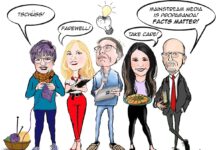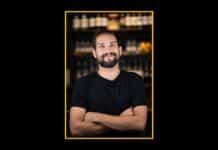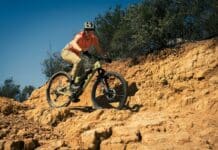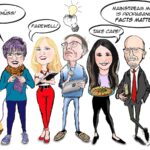
Providing an escape or clearing one’s mind through biking can be a freeing experience, but many do not get that opportunity because of a lack of funding, availability, or instruction. At Kids on Bikes, Executive Director Daniel Byrd, who has been with the organization since 2013, tries to improve kids’ lives with bikes as they did his.
Byrd received his bachelor’s degree in social work from Colorado State University in Fort Collins in the late 90s, and in the process of finishing his degree, he began working with youth. “My entire social work experience has all been on the foundation of working with at-risk youth.” Byrd worked for Urban Peak, which is now called The Place, for seven and a half years, working with youth that were experiencing long-term “disability” which, he says, relates to mental health or co-occurring mental health and substance abuse. Byrd would help transition the youth out of the shelter into their own housing, running the Permanent Supportive Housing Program.
Losing his brother to suicide in the mid-2000s, Byrd explains that life experience connected him fully to the bike realm as a means of therapy. “So, during my full-time job as a case manager, my older brother took his life. And so losing my older brother to suicide, my therapy was the bike.” Byrd said he had an enormous love for bicycling all throughout childhood, and in college, he used it for transportation and for fun. “But it took a drastic turn towards a critical need almost, to ride my bike as my own therapy; to exercise [after my brother died]. And I couldn’t ride my bike enough. And I say this all the time, and it was true…I rode my bike to and from work, on my lunch break, and then after work again. I just kind of had to keep moving and ride my bike.”


Applying His Own Experience to Helping Kids on Bikes
All the while, Byrd says, he was working with youth who were experiencing a horrific time in their lives. “The odds are stacked against them – there are a lot of barriers for them to be more self-sufficient. And time and time again, not only was I experiencing positive change with the bike, but I was realizing that these youth would benefit from bicycling as well. Whether that’s to and from school, or to go out and job hunt; or to get home from the closing shift at Taco Bell at 11 o’clock on a Saturday night.” The bike is always, in Byrd’s mind, a viable tool.
Byrd saw the bike as a critical need for the work that he was doing in those early years. He started in 2000 with very humble beginnings, a modest bike program at Urban Peak. “And that is where the passion and skill set all combined to where I realized, ‘OK, I want to use bicycles [as therapy]. And my social work is through the bicycle. Housing is, of course, critical. Therapy for drug and alcohol substance abuse is critical. All that’s great. But for me specifically, the bicycle is how I want to have an impact on life.”
After he got the bike program going at Urban Peak, Byrd immediately got connected with Kids on Bikes. The neighborhoods he was serving at Urban Peak were the same neighborhoods he was working with at Kids on Bikes. Youths that were 18, who couldn’t be on their own anymore, ended up at the shelters. “So for me, it was very much a way to work further upstream and have a positive impact.” He joined Kids on Bikes part-time and seasonal on top of the social work job at Urban Peak in 2013. By November of 2013, Byrd came on staff and was the only full-time position ever to be hired at Kids on Bikes beyond the initial executive director, a position he eventually took over.

Bikes Provide a Background in Problem Solving and Responsibility
With a lot of kids, bikes and their use and maintenance can develop problem-solving and responsibility skills. With some of the clinics they do, Byrd starts with how and why to lock up a bike. Kids in the program can always earn a bike lock. “I tell them that the first bike that I ever earned [I paid for] myself. I mowed lawns, saved up $100, and bought my own BMX bike. And then it got stolen. right off my friend’s front porch. My friend’s bike as well.” Byrd’s personal story highlights the importance of a bike lock. This kind of example emphasizes to the program’s supporters the approach in guiding and teaching kids healthy and safe habits.” The kids don’t know biking can come back like it did in my case, in your mid-20s, and be something that you use therapeutically.”
It always does come down to individual experiences though. Byrd relates the story of a girl, in a specific housing program at Urban Peak, that got involved in the biking program. She had bipolar disorder and was on medications. She had no physical activity in her life other than walking around. While doing a bike ride in the program. she crashed hard and went over the handlebars. Byrd says he freaked out and went over to see if she was okay. “And it was, I think, the first time in her life she had ever experienced adrenaline because her helmet was all covered in dirt and everything.” She goes, ‘That was awesome!” She was feeling this rush she had never felt before, and Byrd laughed. “But then I went, ‘Yeah, but you’re okay, right?” And she went, “Oh, yeah! Yeah.'”
After that experience, Byrd says the girl kept riding. “And then the bike became so precious to her. And it helped her feel better. So instead of taking this, ‘Well, in order to feel better, I have to have medications and go to counseling…’ This is true. All of that has its place, but so does exercise. “This is a story he tells many of the kids when he talks about the mental health benefits of riding a bike.
Byrd relates another bike incident involving a young male kid who had a lot of outbursts of anger. The kid punched a hole in a wall at one point and would argue with other clients (kids) there. “He was trying to fix a flat on a bike. He stripped the bolts, got pissed, and blew up on the bike. He kicked it, yelled at it, threw a wrench at it. And then, he calmed down, and we got to have a talk about, ‘So let’s talk about those bursts of anger you’ve been struggling with.” And it kind of became this mechanism for us to have a little counseling session, which was great.”
The bike became a channel for therapy for another youth on a ride. That kid had bragged about how much he used to ride his bike. “Oh, yeah. I ride my bike. I used to ride all over the town, blah, blah, blah, blah.” They rode two blocks, and this youth started hacking up and couldn’t stop coughing. The boy stops riding altogether and just stands there and goes, “I really think I should stop smoking.” And Byrd was like “Let’s talk.”


Learning New Skills and Feeling the Impact of Interaction
Whether through the clinics, the bike rides, or the pedal stations to learn how to change tires, Byrd says one never knows what the impact will be. “Sometimes you get the impact right up front or near close and you can be part of the experience of riding a bicycle is life-changing. Or you don’t know the impact and you may never know the impact until much later.” The bike in that way is an equalizer and universal from his perspective. When kids hop on a bike, their experience is the same, no matter what socioeconomic background they come from. Their physical body is experiencing similar things that any other human body is experiencing riding a bike. And usually, Byrd adds, it’s all positive.
With cycling, especially when riding with other people, there is a natural competitiveness that Byrd says is just there for so many kids. In Kids on Bikes’ “Learn to Ride” camps, sometimes the parents attempt to teach the kids, but kids just won’t do it. “But when these young riders see kids their own age riding a bike, they go, ‘Well, I can do that. I want to join them.’ There is a peer influence to ride which Byrd says, “is so motivating and so powerful that it actually eliminates all the other fears that they’ve been holding onto”.










[…] Learning New Skills and Feeling the Impact of Interaction Whether through the clinics, the bike rides, or the pedal stations to learn how to change tires, Byrd says one never knows what the impact will be. “Sometimes you get the impact right up front or near close and you can be part of the experience of riding a bicycle is life-changing. Or you don’t know the impact and you may never know the impact until much later.” The bike in that way is an equalizer and universal from his perspective. When kids hop on a bike, their experience is the same, no matter what socioeconomic background they come from. Their physical body is experiencing similar things that any other human body is experiencing riding a bike. And usually, Byrd adds, it’s all posit With cycling, especially when riding with other people, there is a natural competitiveness that Byrd says is just there for so many kids. In Kids on Bikes’ “Learn to Ride” camps, sometimes the parents attempt to teach the kids, but kids just won’t do it. “But when these young riders see kids their own age riding a bike, they go, ‘Well, I can do that. I want to join them.’ There is a peer influence to ride which Byrd says, “is so motivating and so powerful that it actually eliminates all the other fears that they’ve been holding onto”. article credit by maverick observer […]